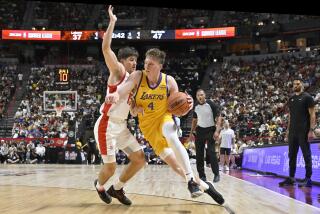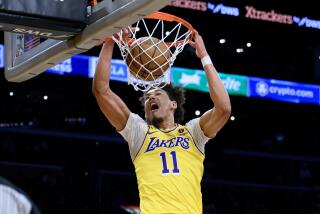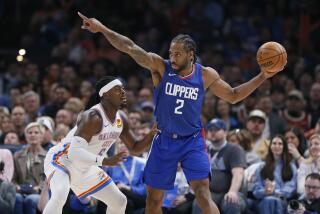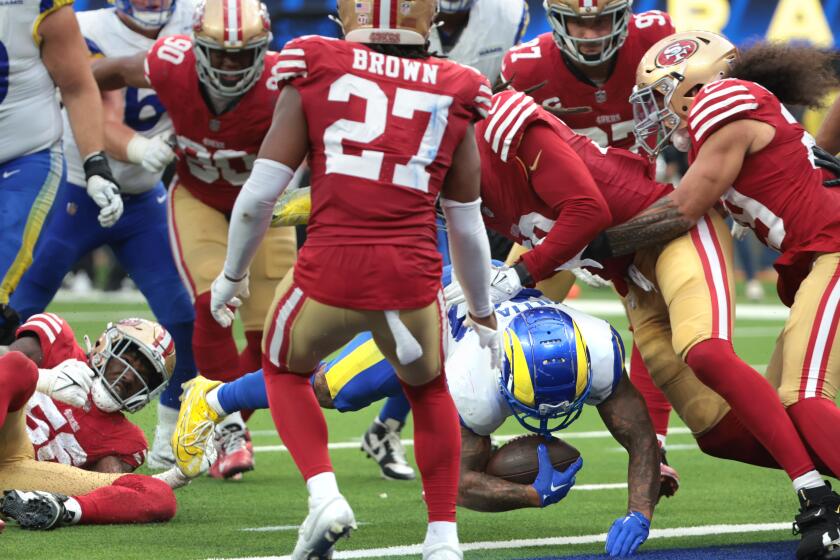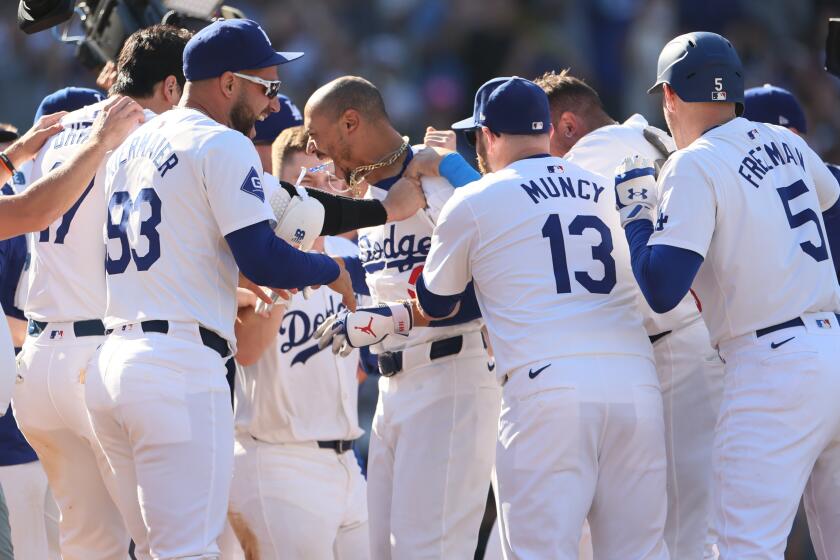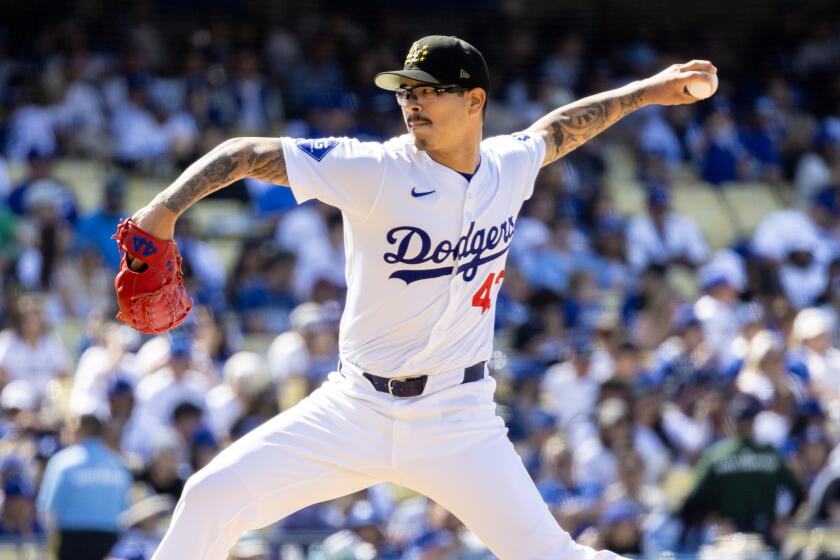Stats don’t tell story for players like Thunder’s Kendrick Perkins
Statisticians can measure seemingly every imaginable aspect of sports, plug the data into spreadsheets or algorithms, then extrapolate factors for success and failure. Voila! Bullet-proof evidence, they’ll argue.
It was like this long before the first sports books opened in Las Vegas or IBM computers started rolling down assembly lines, but in today’s fantasy sports era, no statistic escapes scrutiny.
Yet, there’s an outlier in Oklahoma City, a player with an impact as big as his towering stature but with a statistical footprint that’s almost nonexistent.
“He’s not a stat-sheet stuffer,” says Oklahoma City star Kevin Durant.
No, Kendrick Perkins, the Thunder’s 6-foot-10, 270-pound center, is most definitely not.
Through Friday, Perkins ranked 186th in the NBA in scoring (4.8 points a game) and 60th in rebounding (5.5 a game).
The only clear way to gauge Perkins’ value? Wins and losses. (Quaint, no?)
And since the NBA-best 18-4 Thunder acquired him in a trade with Boston in February 2011, its record is 31-8.
“If you didn’t watch our games, you wouldn’t know how important he is to our team,” Durant says.
Even if you watch, you have to pay attention, because while Perkins is easy to spot, the way he changes games isn’t.
Each time an opposing big man is having an “off night,” notice the defender hounding him on every shot and rebound.
Each time a Thunder player endures a hard foul, notice the refrigerator-sized teammate who levels the accused opponent.
And each time Durant, Russell Westbrook or James Harden curls around a screen and finds an acre of wide-open shooting space, notice the equilibrium-rattling pick that set him free.
“I feel like if I set a good screen and my teammate gets a good shot and he makes it, I feel like I made the shot just as well,” Perkins, 27, says in a baritone Southern drawl.
Selflessness personifies the blue-collar Beaumont, Texas, native, and the youthful Thunder needed his services enough that they locked him up with a four-year, $35-million extension before he ever played a game for the team.
Then, despite playing with a right knee not fully recovered from a torn anterior cruciate ligament he suffered in 2010, Perkins helped the Thunder reach the Western Conference finals last year.
This season, that knee is almost 100% healthy and Perkins shed 31 pounds, too, so his mobility is much improved.
Numbers may not show it, but his presence alone gives the Thunder what it lacked most: leadership, a defensive anchor, an inside presence, and a toughness Harden called “contagious” and Thunder Coach Scott Brooks said is no act.
“I wouldn’t mess with him,” Brooks said. “The NBA needs more of that ‘it’s-about-us-against-them’ mentality. And that’s what he brings to the table every day.”
Perkins is known for his signature scowl, which looks as though he grimaced so much as a child that, as he was probably warned would happen, his face stuck that way. “I didn’t know he had a smile until he got to Oklahoma City,” Durant says.
But don’t assume Perkins is an oversized enforcer who burns through fouls like a Hummer does gasoline.
His basketball IQ is in the NBA’s upper echelon and he’s a savvy air-traffic controller on the court. His teammates listen, too, especially because he has a championship ring, earned with Boston in 2008.
To them, he preaches that it’s more fun to lose yourself in the camaraderie of winning than to lose and have big numbers. As an example of that mind-set, Perkins put it like this:
“Can you name me five players off the 2004 All-Star team?”
The reporter scratched his head.
“Can you name me who won the championship in 2004?”
Detroit, the reporter answered.
“My point exactly.”
twitter.com/baxterholmes
More to Read
Go beyond the scoreboard
Get the latest on L.A.'s teams in the daily Sports Report newsletter.
You may occasionally receive promotional content from the Los Angeles Times.
